

Monster Hunter Stories was provided by CAPCOM for review. Thank you!
This review used an LCD Steam Deck. OLED details will be coming later.
Before getting to try Monster Hunter Stories, my only experience with the Monster Hunter franchise was a game way back when on the PSP, and later Monster Hunter World. Sadly, I didn't particularly gel with either game. But Monster Hunter Stories takes a different approach to gameplay and art style. So let's take a look at it now that this Nintendo 3DS game is finally making its way to Steam!
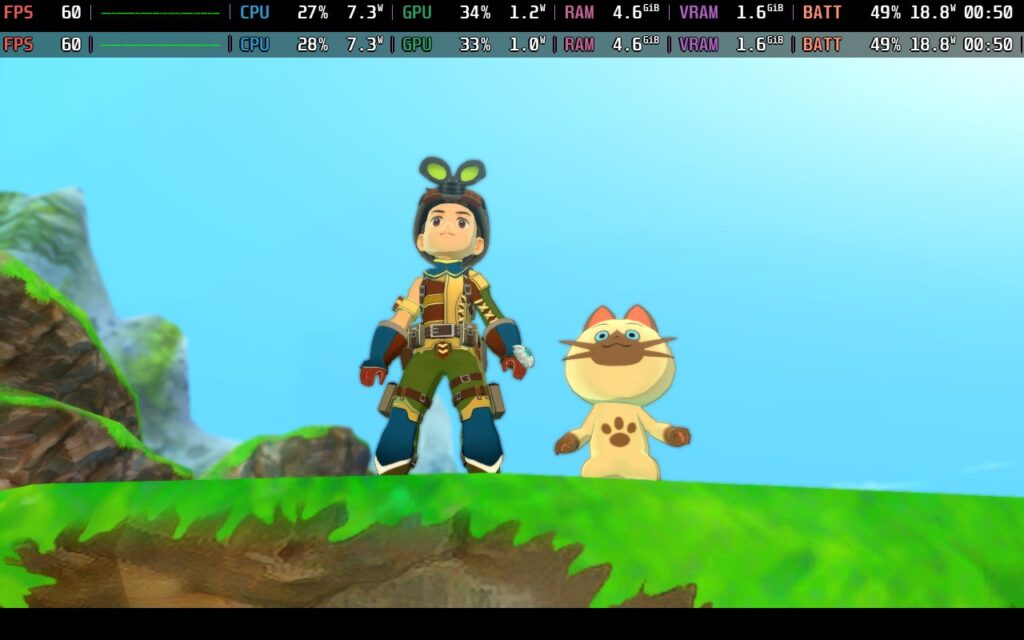
Monster Hunter Stories adopts a much more colorful and "friendly" aesthetic than its main series counterparts. Graphics are stylized and shaded in a more traditional JRPG style rather than the somewhat realistic look most Monster Hunter games use. While the graphics don't particularly impress, they do the job well enough. This is pretty much a straight port of the 3DS version of the game, so some of the game worlds can look "flat." There's no 3D grass in grassy plains, so the graphics are probably more in line with what you'd expect from a PS2 or Gamecube game. The Monsters themselves look fine and are animated well.
There's not too much to comment on in terms of audio. A lot of the game's dialogue is voice-acted, which is nice. The game's soundtrack isn't particularly memorable, but it sets the theme for the game depending on the area you are in. Footstep noises might irritate, especially when you're on foot and not riding a mount. It would have been good if there was a separate option for footstep volume in the options menu, but alas, it's bundled in with Sound Effects as a whole.
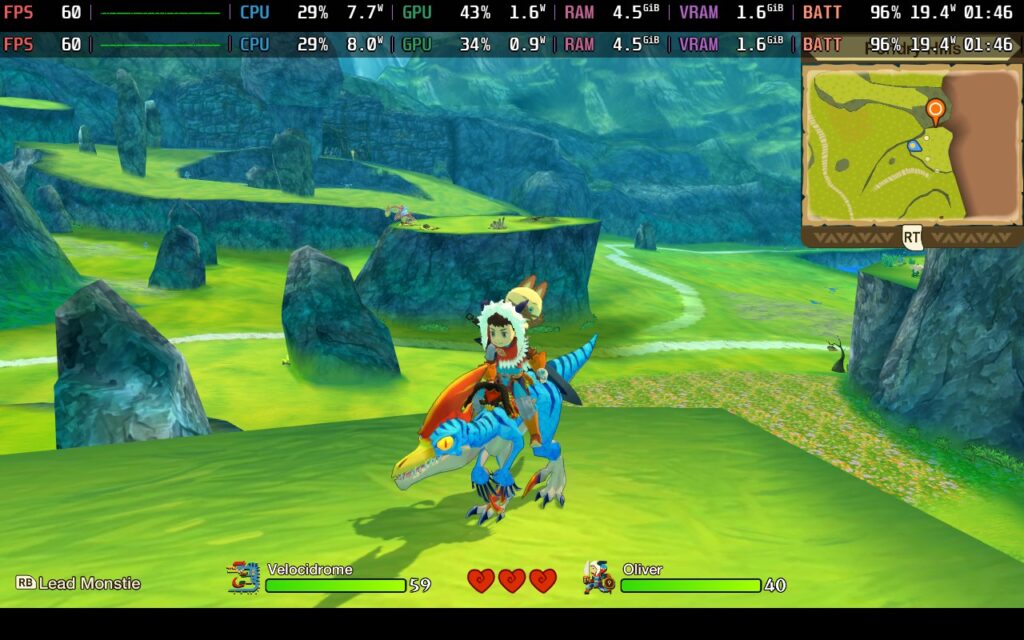
Now, we get into the game's combat system. In battles, you and a Monster of your choice in your party will participate in the fight against one or multiple enemies, and the combat is turn-based, unlike the real-time combat usually seen in the Monster Hunter games.
Monster Hunter Stories adopts the tried-and-trusted rock, paper, scissors mechanic. One move counters another, but in itself can be countered by a 3rd move. The 3 basic attacks you can execute are Power, Speed, and Technical. Depending on the moves you and your enemies pick, you'll either have the advantage and deal bonus damage, draw and both deal damage, or have a disadvantage and take extra damage.
There are also special abilities, such as the ability to command your "monstie" in a fight to use a certain skills, or you can use items yourself to heal or give other stat boosts. The game's combat is focused on recognizing what kind of attacks your opponent will use and choosing the correct counter-move, as well as finding the enemy's weakness to deal the most damage.
There's a fair amount of strategy involved in what abilities to use when and when is best to attack or sit back and attempt a heal. I found the combat to be pretty enjoyable, it can feel relaxing and tense at times, depending on how difficult the fight is, and I think the game is balanced pretty well. There are no difficulty options, so that's an important thing.
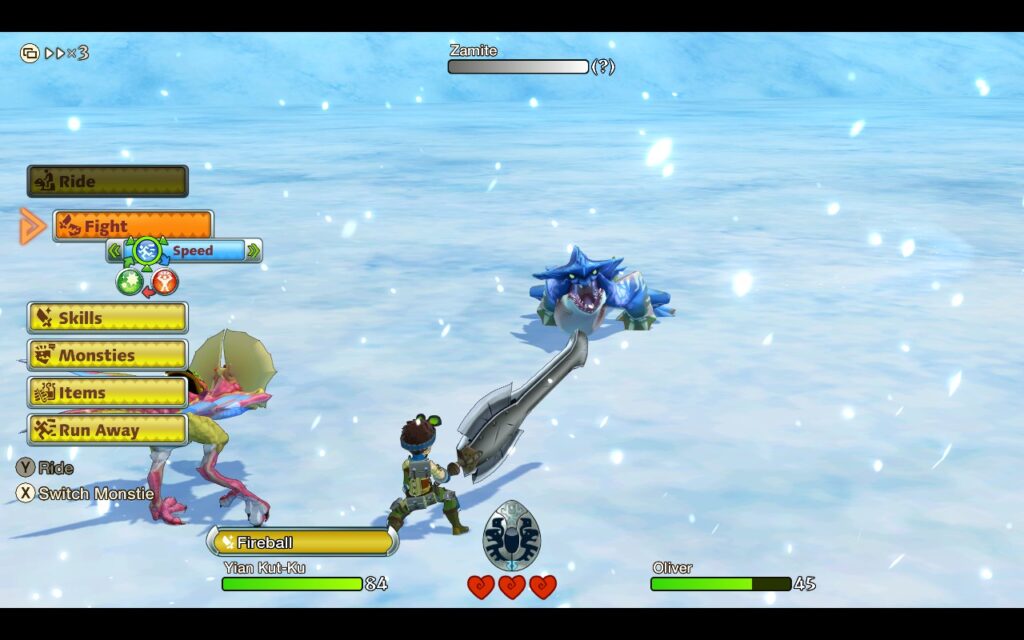
The story is pretty basic. Unlike the Monster Hunter games, in Monster Hunter Stories, you are a Monster "Rider" rather than a Monster "Hunter," so your aim is to coexist with monsters when possible rather than hunt them down. While Monster Riders are usually confined to their village and the surrounding areas, the protagonist decides that he wants to see the world, so the story begins as you go on an adventure with your Monstie party.
Also, there's something to do with your childhood friend getting all angsty, hating monsters, and running off, so you must find him whilst the world is being corrupted by some dark force, but I'm sure that's all fine!
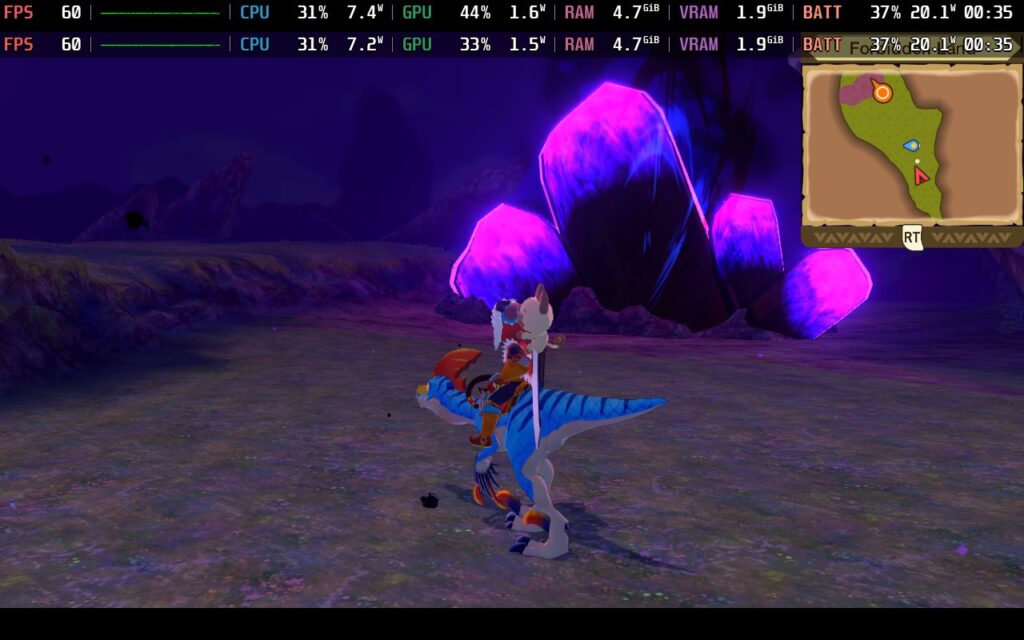
Monster Hunter Stories is a solid game. Don't be put off by its cartoonish aesthetic and lower price tag. This game is launching at $30, but that's not a reflection on how much fun it is or, indeed, how long the game is. I thoroughly enjoyed my time with Monster Hunter Stories. It's a light-hearted adventure that, despite some technical shortcomings, has charm and beauty in its own right. As for the game's length, while it's not quite your typical 100-hour JRPG, it'll take the average player around 40 hours to beat the game, according to Howlongtobeat.com.
But can we be a Monster Rider on the go with our Steam Decks?
Monster Hunter Stories has few graphics settings to choose from, so this should be fairly simple.
The game does have good controller support. All the menus can be controlled with your Steam Deck without the need for a touchscreen or touchpads. Sadly, the game doesn't support 16:10 resolutions, so you're stuck playing at 1280x720 with black bars along the top and bottom for this one.
As there are limited quality settings, I will provide just one preset, targeting 60 FPS.
In your SteamOS settings, set an FPS Limit of 60 FPS / 60Hz, and we won't have a TDP limit here.
We're running max settings for this one, which in this game means turning Anti-Aliasing On, having the Shadows on High, and playing at 1280x720 resolution, with an in-game frame cap of 60.
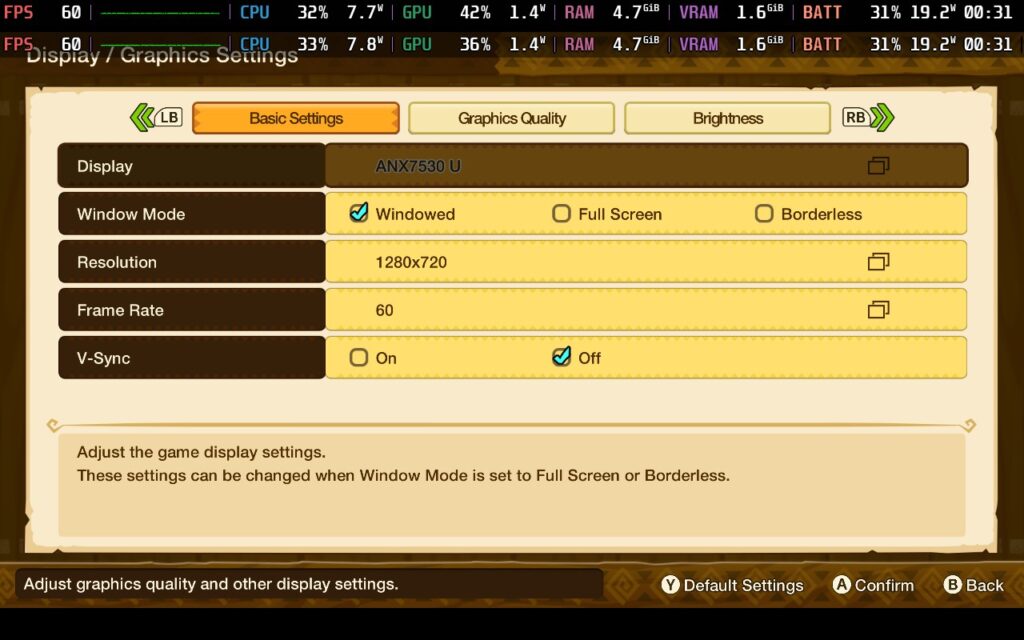
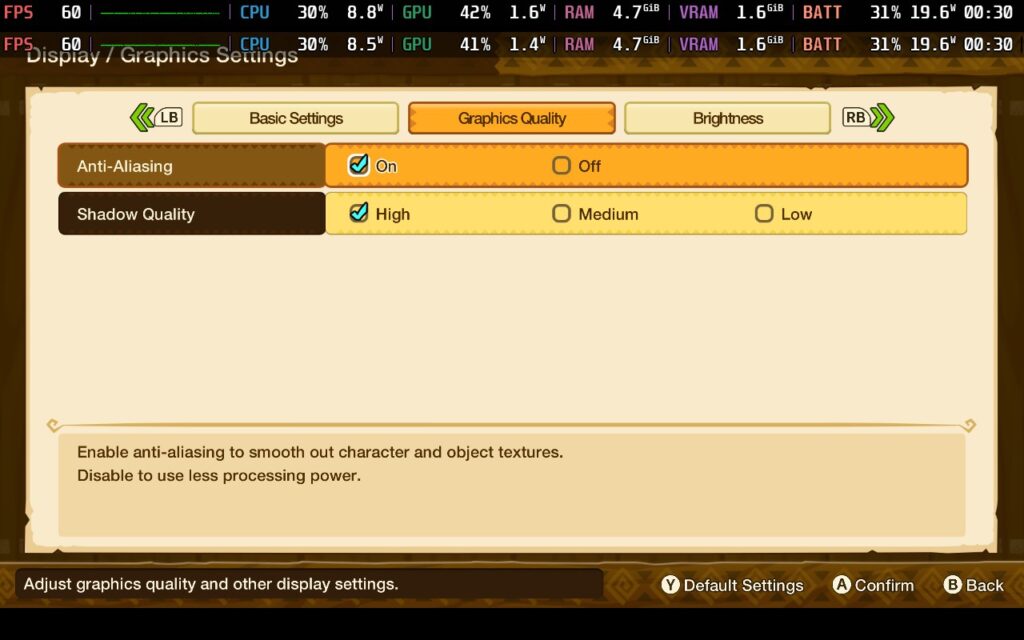
In these settings, the game locked at 60 FPS for me. The game is CPU-intensive on a single thread, so the graphics make almost no difference in performance. Lowering the TDP Limit just starves the CPU of power, which causes slowdowns below 60 FPS. If we want to maintain 60, we must keep the TDP at 15W.
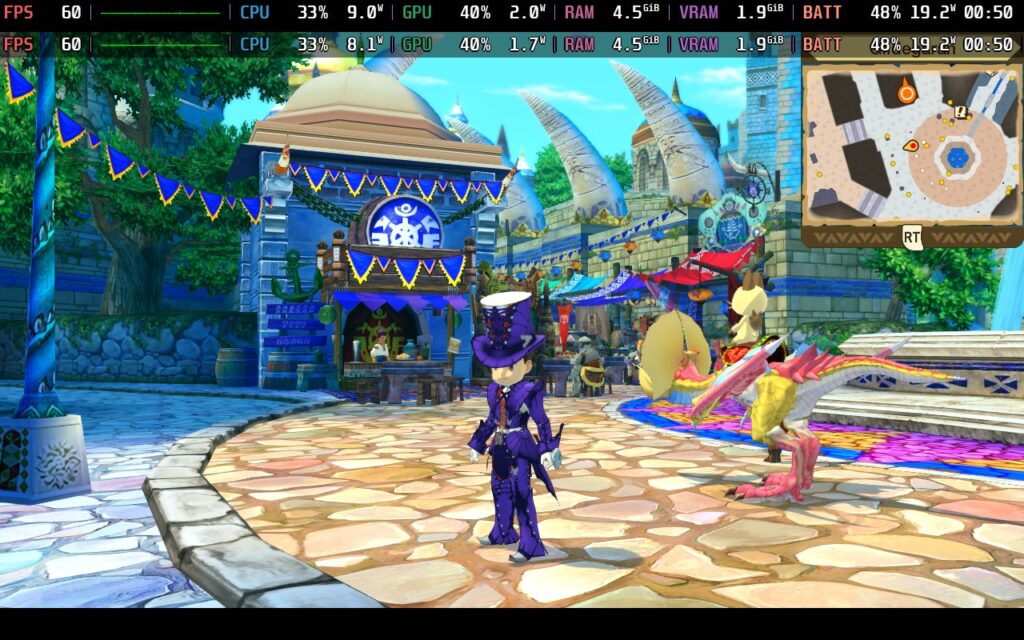
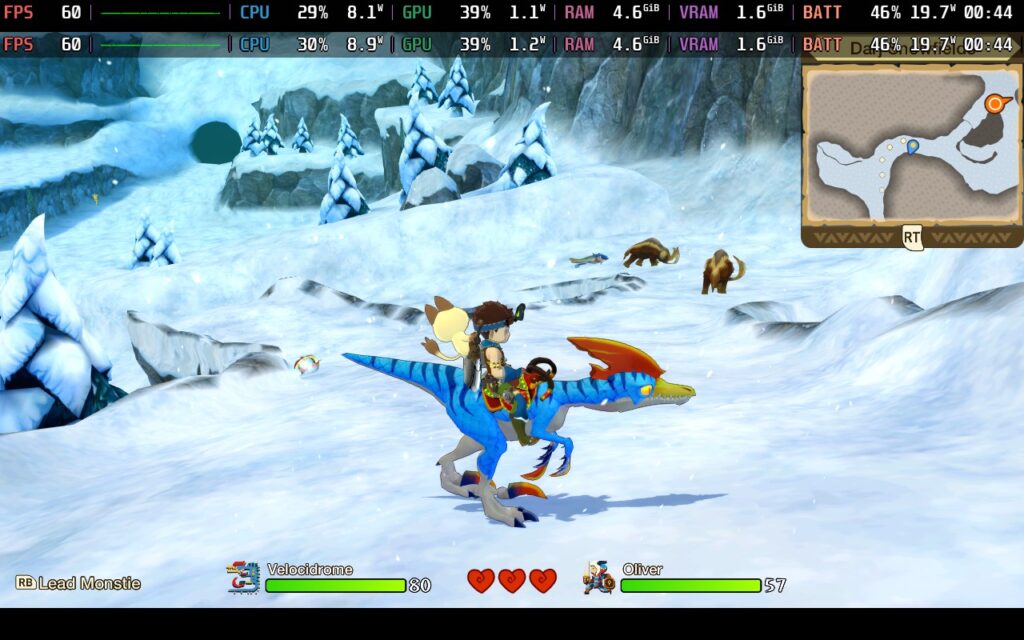
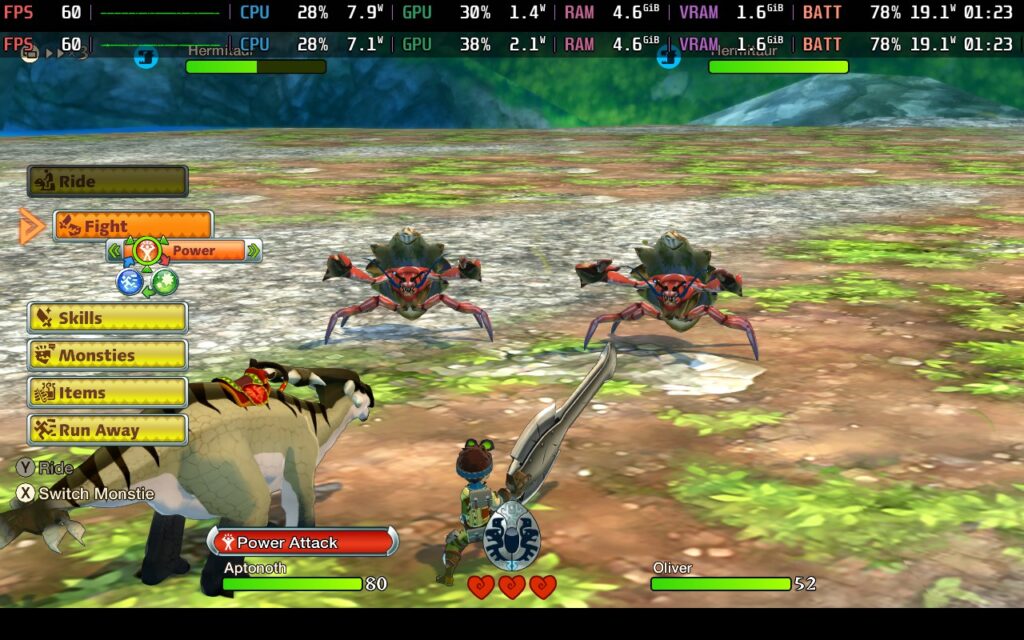
Power draw tended to stay around the 19-21W mark for most of the game, interestingly even in menus and smaller areas, the CPU usage is still very high. Steam Deck LCD owners should expect around 100 minutes of battery life. Steam Deck OLED owners will probably get just over 2 hours.
If you want to save some battery life, you can lower your SteamOS FPS Limit to 40 or even 30, lowering the power draw from 19-21W to about 17W. It's a minor saving, though, and I'd rather have smooth gameplay. Even if you reduce the FPS limit to 40 or 30, the CPU usage still maxes out on one thread, so the power savings are minimal. This is likely a drawback of being a straight 3DS port.
GPU temperatures tend to hold around 70C, but the CPU is often at 80C or above, likely due to that high single-thread usage.
While the game only lets you save at certain points, it does autosave quite frequently, so don't worry too much about getting stuck where you can't save and your battery is running low.
Monster Hunter Stories has some basic accessibility options. You can enable/disable subtitles for cutscenes, adjust camera sensitivity, and remap controls.
Monster Hunter Stories is a fun, light-hearted adventure of a young adventurer off to see the world with their Monster friends. As a side note, you can play as a boy or a girl if that interests you! If you're after a relaxing game that airs on a JRPG's side but isn't as intense as many are, then Monster Hunter Stories is a great choice.
Performance on the Steam Deck is nearly flawless. The only two things I found that let it down are the high CPU usage, which causes high power draw (and temperatures), and the fact that the game doesn't support 16:10 resolutions, so you'll have black bars. I couldn't make the framerate drop below 60, and the controls work fine on the Steam Deck.
You can buy Monster Hunter Stories with confidence that it'll work well on your Steam Deck, just make sure you stay near a charger if you want a longer play session.
Our review is based on the PC version of this game.
If you enjoyed this review, be sure to check out the rest of the content on SteamDeckHQ! We have a wide variety of game reviews and news that are sure to help your gaming experience. Whether you're looking for news, tips and tutorials, game settings and reviews, or just want to stay up-to-date on the latest trends, we've got your back.
Aside from disappointing battery life and no 16:10 Aspect Ratio support, Monster Hunter Stories is flawless on the Steam Deck, and I would highly recommend it.